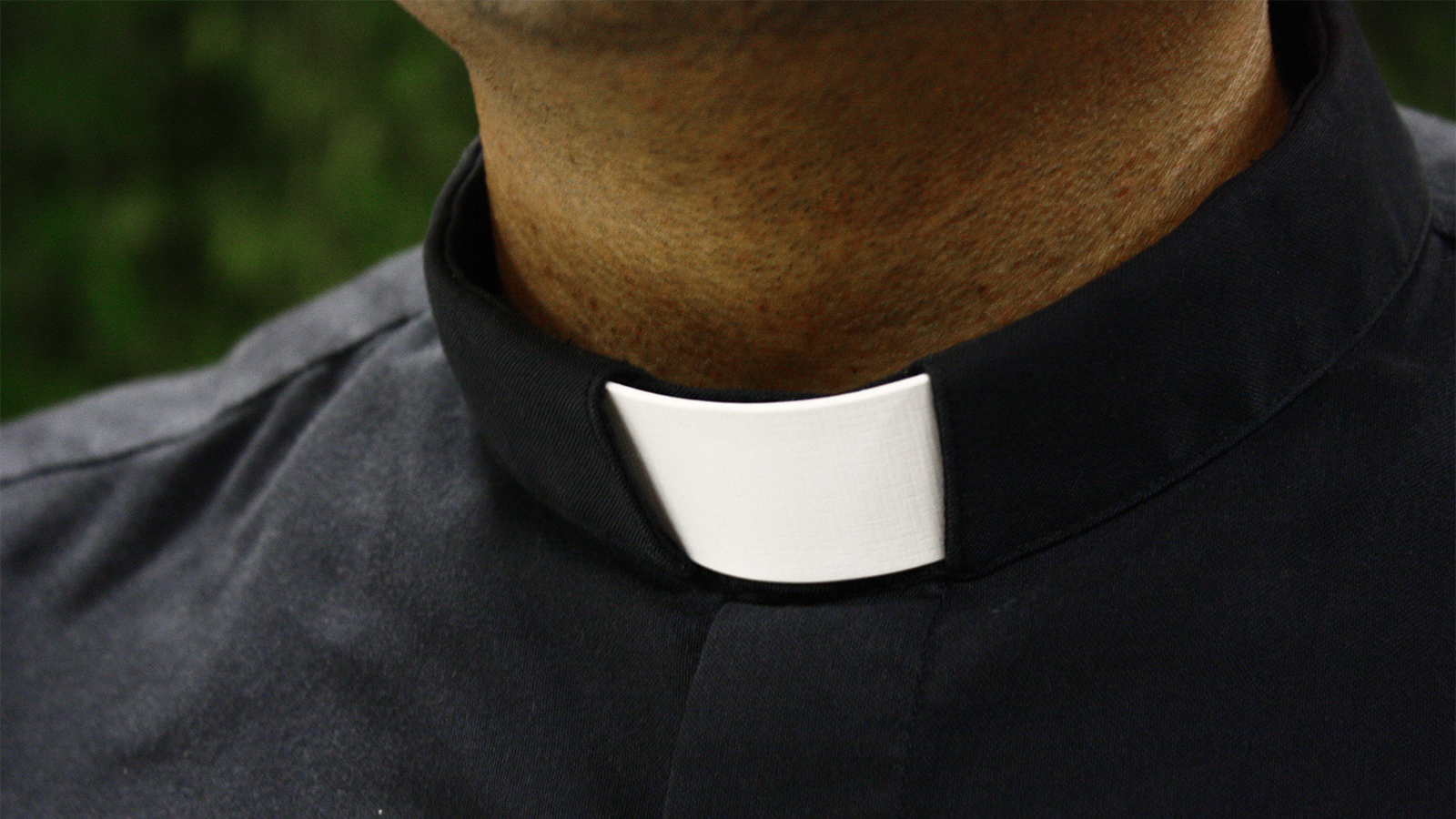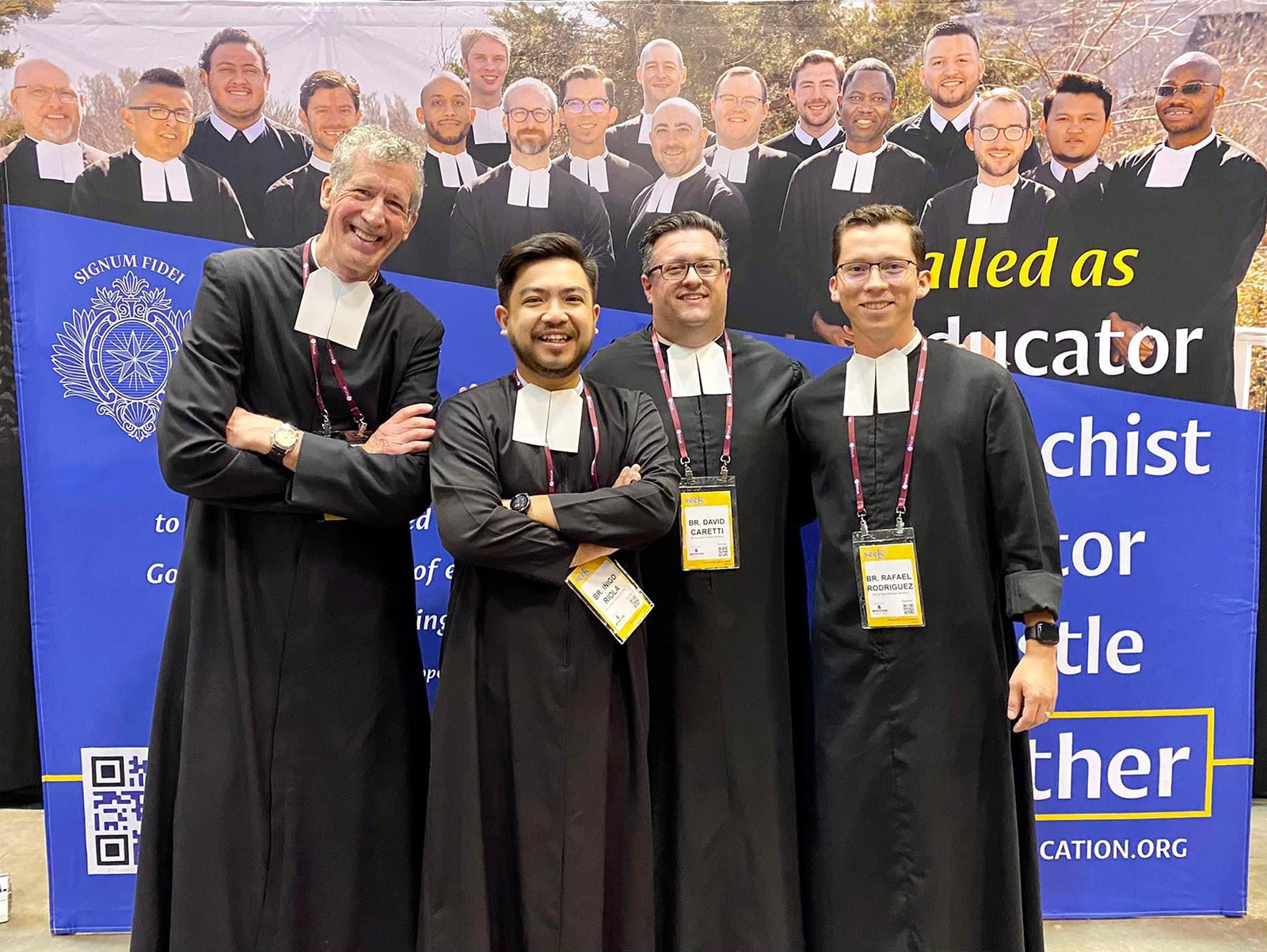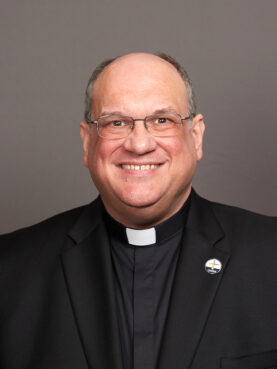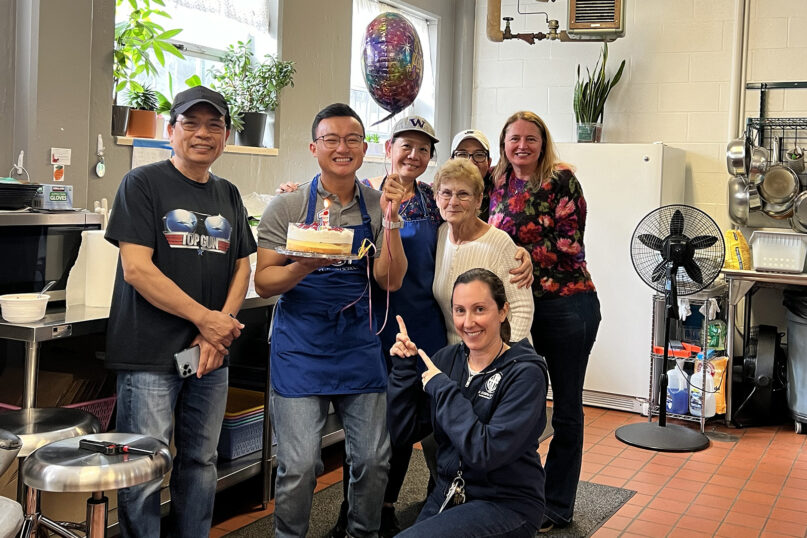(RNS) — Tuan Anh Nguyen’s journey to religious life began with a stint as a youth minister, a proposed bargain with God and a (possibly) divine sign in a video game.
Though wagering a vocation on his mad video game skills is a little unusual, the data suggests Nguyen is increasingly typical of aspiring Catholic religious in other ways: ethnically diverse, educated and influenced by positive experiences in Catholic youth or campus ministry.
This changing class of Generation Z and millennial aspirants like Nguyen is prompting religious communities — often anchored in decades if not centuries of tradition — to rethink what it means to mentor and walk alongside these young men as they discern their calling.
The fact that those considering religious vocations are more diverse reflects changes in the U.S. Catholic population itself, according to the Rev. Thomas Gaunt, executive director of Georgetown University’s Center for Applied Research in the Apostolate. More than a quarter of U.S. Catholics are now foreign-born, he said, a change that has been gradually occurring since the 1970s. “We’re not always cognizant, day to day, of how notable that change has been.”
The son of Vietnamese immigrants, Nguyen, who goes by “TA,” had originally planned on being a doctor, pursuing a pre-med curriculum in college. He even went so far as to take the Medical College Admission Test.
But his experience in youth ministry in his home parish, as well as working side by side with a Jesuit on a young adult retreat post-college, and a growing attraction to Ignatian spirituality caused him to wonder if he was on the right path.
Looking back, he thinks a seed was planted then, said Nguyen, a cradle Catholic. Since then, that sense of dissonance and a longing for something more have only grown.
Several years later, while attending a prayer vigil for a friend who had become seriously ill while teaching overseas, Nguyen said, he tried to make a bargain with God.
“God, if he survives, I will consider becoming a priest,” he recalls thinking.
His friend, who had been in a coma, awoke the next day.
Just a coincidence, decided Nguyen. But the idea of becoming a priest stuck with him.
A few months after his prayer vigil experience, he was in his room with the same friend, safely returned home. While playing the video game Counter-Strike, he found himself in a map called Monastery.
There, he had a similar thought. “If I win first place, I’m going to do it.”
Spoiler: He won.
“You just saw a huge smile on my face. I was like, OK, tomorrow I’m going to reach out to a Jesuit and start the process,” he said.

(Photo courtesy of Creative Commons)
Since September, he’s been sharing a discernment house the Jesuits have set up in Seattle, along with two other men who are also exploring a call to the priesthood.
“We’re kind of creating this as we go along,” said Nguyen.
The three young men meet regularly with their house supervisor and vocation director. Nguyen has a patchwork of volunteer jobs, including coaching basketball and helping out in a theology class at a local parochial school as well as serving lunch in its cafeteria.
“It’s almost like a postulancy program, without being formal,” said the Rev. Radmar Jao, who heads the vocation team for the Western province of the Jesuits and is himself a former actor. In addition to the volunteer work, he said, men are also connected to a local Jesuit community. According to the data compiled by the Jesuits’ West province, about 50 men are in an active discernment period and are further along in the process, including Nguyen and his two housemates.
Some of the men interested in joining the Jesuits are drawn to the idea of community. But the reality of communal life is complicated, said Jao.
“Community has its challenges. You got to be ready (to live with) someone with whom you don’t get along. Or they may come to us and realize, this is not the community I would like to live in.”
As in any other community, Nguyen and his fellow aspiring priests, who come from different cultural backgrounds, have encountered some bumps along the way. One minor conflict involved a disagreement over whether they should use the dishwasher or a drying rack (his vote), a conflict Nguyen termed “the battle of the Grandmas.”
Meanwhile, they are building a chapel in a room in the house, creating a space for future men in the discernment process “and finding a way to serve each other through our annoyances.”
Though there are fewer men’s communities than women’s, there are still over 200 men’s religious institutes in the United States, according to Sister Debbie Borneman of the National Religious Vocation Conference. Some men’s communities include priests and brothers, while others are only for brothers. “Among the men who entered religious life in 2022, nine in 10 (89%) expect to become priests, and one in ten (11%) plan to become a perpetually professed brother,” wrote Borneman in an email, citing CARA research.
Deciding which community to join is part of the discernment process — and social media, as well as access to so much online information, has sometimes made that choice more difficult.
“Everyone shops around today. It’s kind of an Amazon mentality,” said Brother Larry Schatz, vocation director for the Christian Brothers Midwest province. While social media is helpful, it won’t usually tip the balance for a young man trying to figure out whether he belongs in a community, said Schatz. “It’s all about the relationship. They have to be able to trust you before they would take the next step.

De La Salle Brothers Larry Schatz, from left, Iñigo Riola, David Caretti and Rafael Rodriguez. (Courtesy photo)
“Some (discerners) are really good communicators. Others you barely hear from. Part of it is that their lives are so much more complicated and distracting than mine was,” said Schatz, who is 70.
Men are concerned about whether they are entering a community that will be able to sustain itself in the long term, said the Rev. Frank Donio, a member of the Society of the Catholic Apostolate and executive director of the Conference of Major Superiors of Men.
None of these groups is getting the numbers of applicants it wants, he said. While he attributed part of that to demographics and changes in the way ministry functions in the church, he added that some families also actively discourage men from pursuing a call.
Some men may start the process and realize they want to be married or partnered.
“The idea of giving up sex, or giving up your freedom and obeying, or living poorly or simply is anathema” to many, he said.

The Rev. Frank Donio. (Photo by Gary Rohman)
To all of that, Donio offers a robust response: “It’s all about me, right? Well, no, it’s not. It’s all about us.”
The way younger generations define identity has changed as well, he said. Some might be attracted to religious life by a community focus on justice. Others are drawn to more traditional forms of worship or the distinctive garb of some communities.
As the pool of potential members and entrants becomes more diverse, there is sometimes friction. One example, said Borneman, was disagreement about hymns and prayer times. But she believes these clashes can also be opportunities. “I don’t know if it’s just the older members who have the challenges. I think it’s for the whole community. If their dominant culture is Anglo-Caucasian, it could be challenging, regardless of age, to members of the religious Institute.”
Rather than minimizing differences (or defaulting to “we’ve always done it this way”), Borneman said she encouraged members to have “authentic conversations about finding common ground.”
As tempting as it might be to try to push young men into the priesthood, especially at a time when there is not an abundance of calls to the religious life, Jao believes it’s important to invite the men in his care to see the big picture as they try to discern their call.
While Jao said he cares whether men eventually become Jesuits or not, his main concern is that their search ultimately draws them closer to God, he said.
While Nguyen is still in the discernment process, he said people have remarked on how happy he seems, his eyes alight with the glow of someone who has found his calling.
“It’s funny. I used to pray that this kind of calling went away,” he said.
While he had been in some serious romantic relationships, he’s never found “the perfect woman,” he said. Now, as he engages in the volunteer work that is part of this year of exploration, he said, “there is a sense of rightness, like I’m supposed to be here.”
His mom, concerned about his welfare, asked him if he was running away from something in his life.
“I’m not running away from something,” he told his mother. “I’m running toward priesthood.”





